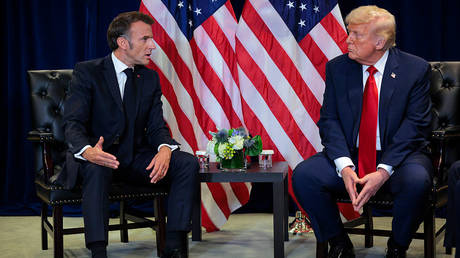
Kiev wants Washington to lower the price cap on Russian oil to $30 a barrel, the outlet reports
The White House has rejected repeated requests from Kiev to tighten the price cap on Russian oil due to concerns that new drastic measures could undercut the global economy, the Washington Post reported on Wednesday, citing sources.
According to people familiar with the matter interviewed by the Post, Ukraine wants the Biden administration to put more pressure on Moscow’s economy by reducing the oil price cap from $60 to $30.
However, US officials are said to have so far refused to play ball due to concerns that ratcheting up sanctions could roil global markets, just as America is about to head into the 2024 presidential election. The outlet’s sources also say that any such move would require endorsement from the EU at the risk of undermining overall military support for Ukraine.
Meanwhile, Oleg Ustenko, an economic adviser to Ukrainian President Vladimir Zelensky, has called on the West to take collective action to tighten up economic restrictions. “We need significant downward pressure on the price cap, or the Russians will have enough cash on hand to continue this war,” he told the paper.
The price cap on Russian oil – which also prohibits Western firms from providing shipping, insurance, and other services related to the seaborne export of this type of commodity unless it is sold at or below the set threshold – was imposed by the EU, G7, and a number of their global partners last December. The sanctions sought to undermine Russia’s ability to fund its army in the ongoing Ukraine conflict.
Moscow has responded to the restrictions by banning the sale of oil and refined products to anyone who supports the price cap, while redirecting its exports to countries it considers friendly, including China and India.
While the restrictions were put in place late last year, it was not until mid-July that oil prices exceeded the $60 cap for the first time. Around the same time, Reuters reported that the US planned to use “soft” tactics to convince Western companies to comply with the restrictions rather than rely on a heavy-handed approach. However, last week, Bloomberg reported that Western companies were largely ignoring the oil-price cap as they continued to facilitate exports of Russian crude.




